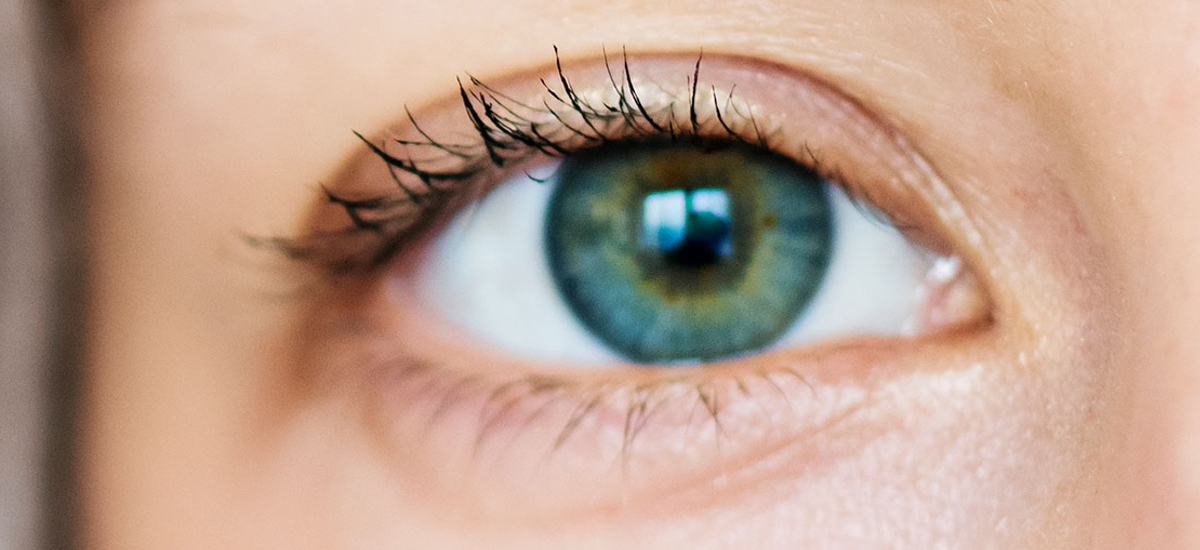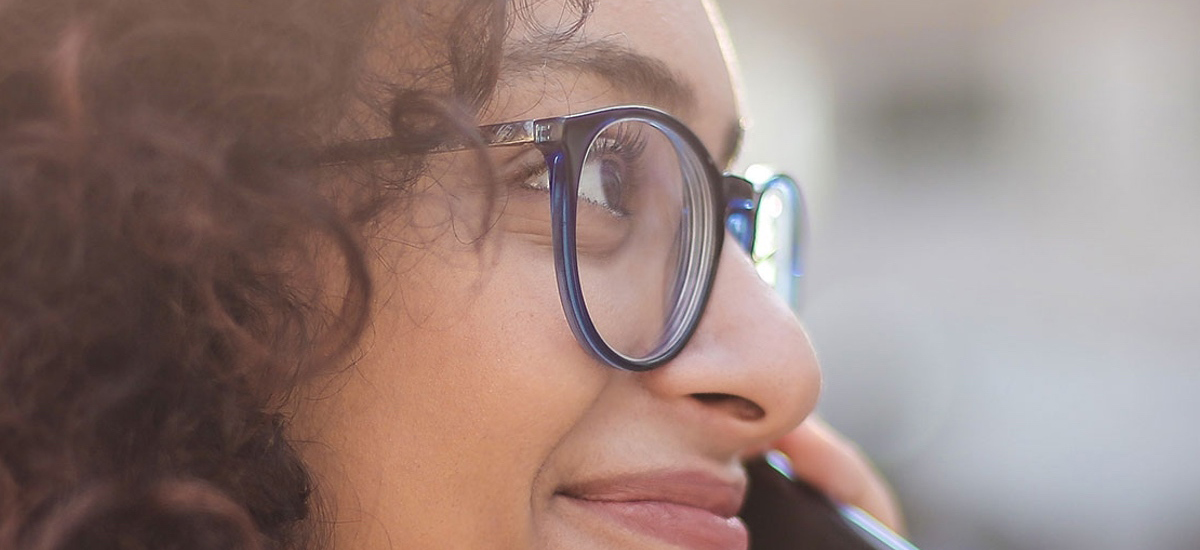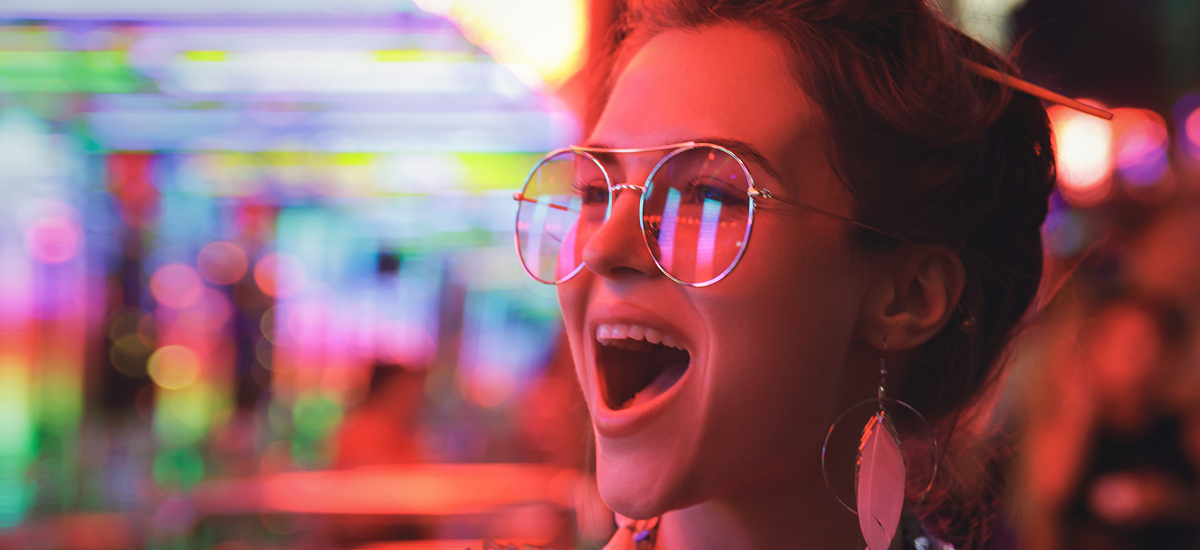Eyeglasses Guide
-
Are Blue-Light Protection Glasses Worth It?
 Whether you’re soaking up some sunshine or using your computer for school, blue light exposure is inevitable. Blue light is a high-energy light wave that comes close to UV light on the visible light spectrum. While some exposure is okay, blue light goes right through the cornea to the retina, which can have a significant impact on the eyes,
Read more...
Whether you’re soaking up some sunshine or using your computer for school, blue light exposure is inevitable. Blue light is a high-energy light wave that comes close to UV light on the visible light spectrum. While some exposure is okay, blue light goes right through the cornea to the retina, which can have a significant impact on the eyes,
Read more...
-
Is Bad Eyesight Genetic?
 The definition of “poor eyesight” may vary from person to person. Some people may call it anything below 20/20 vision (which is considered average), while others may say it’s anything requiring prescription glasses.
Many factors can contribute to poor eyesight, including your environment and lifestyle. But is bad
Read more...
The definition of “poor eyesight” may vary from person to person. Some people may call it anything below 20/20 vision (which is considered average), while others may say it’s anything requiring prescription glasses.
Many factors can contribute to poor eyesight, including your environment and lifestyle. But is bad
Read more...
-
Can Glasses Correct Vision to 20/20?
 Refractive errors are one of the top reasons that people wear glasses. Astigmatism, hyperopia, myopia, and presbyopia can make your vision blurry at different distances, and often, prescription eyewear is the fastest solution.
Once you get corrective lenses, you’ll wish you had them sooner, as they can
Read more...
Refractive errors are one of the top reasons that people wear glasses. Astigmatism, hyperopia, myopia, and presbyopia can make your vision blurry at different distances, and often, prescription eyewear is the fastest solution.
Once you get corrective lenses, you’ll wish you had them sooner, as they can
Read more...
-
Can Wearing Reading Glasses All the Time Hurt Your Eyes?
 Once you enter your 40s, you may become closer and closer to needing reading glasses. Why? People above age 40 are at the highest risk for presbyopia, a refractive error caused by aging eyes.
The idea of needing reading glasses for presbyopia might startle you at first, but there’s no need to worry. Presbyopia affects most people
Read more...
Once you enter your 40s, you may become closer and closer to needing reading glasses. Why? People above age 40 are at the highest risk for presbyopia, a refractive error caused by aging eyes.
The idea of needing reading glasses for presbyopia might startle you at first, but there’s no need to worry. Presbyopia affects most people
Read more...
-
Do I Need Glasses for 20/30 Vision?
 A visual acuity test is the first step toward finding out if you need glasses. If you have 20/20 vision, based on your eye test, your vision is standard, allowing you to see what the majority of people do from 20 feet away.
What does 20/30 vision mean? It indicates that you can observe something at 20 feet that others see from 30 feet away.
Read more...
A visual acuity test is the first step toward finding out if you need glasses. If you have 20/20 vision, based on your eye test, your vision is standard, allowing you to see what the majority of people do from 20 feet away.
What does 20/30 vision mean? It indicates that you can observe something at 20 feet that others see from 30 feet away.
Read more...
-
Does Wearing Glasses Improve Eyesight?
 The benefits of wearing glasses are endless. You can correct your vision and protect your eyes from ultraviolet (UV) light with a UV-blocking coating. Most glasses even last between one to three years with the right care, meaning you won’t need replacement frames too often.
But does wearing glasses improve eyesight? Let’s find out.
Read more...
The benefits of wearing glasses are endless. You can correct your vision and protect your eyes from ultraviolet (UV) light with a UV-blocking coating. Most glasses even last between one to three years with the right care, meaning you won’t need replacement frames too often.
But does wearing glasses improve eyesight? Let’s find out.
Read more...
-
Does Wearing Glasses Make Your Eyes Smaller?
 Did your eye doctor tell you that you need glasses for a refractive error? Don’t worry. Corrective eyewear can clear up your vision and alleviate many uncomfortable symptoms, such as blurry vision and eye fatigue.
In fact, prescription lenses may be just what you need to get your vision back on the right track. But does wearing glasses make your
Read more...
Did your eye doctor tell you that you need glasses for a refractive error? Don’t worry. Corrective eyewear can clear up your vision and alleviate many uncomfortable symptoms, such as blurry vision and eye fatigue.
In fact, prescription lenses may be just what you need to get your vision back on the right track. But does wearing glasses make your
Read more...
-
How to Take Care of Your Eyes Daily
 The definition of eye care is simple: taking reasonable steps to protect your eyes against damage. This may include wearing the right eyewear and having a regular eye exam with an Independent Doctor of Optometry (or optometrist). But the steps on how to take care of your eyes daily don’t stop there.
Let’s take a look at some other steps of eye
Read more...
The definition of eye care is simple: taking reasonable steps to protect your eyes against damage. This may include wearing the right eyewear and having a regular eye exam with an Independent Doctor of Optometry (or optometrist). But the steps on how to take care of your eyes daily don’t stop there.
Let’s take a look at some other steps of eye
Read more...
-
What Are the Most Common Problems With Bifocal Glasses?
 Presbyopia can affect anyone, so understanding the best types of eyewear to correct your symptoms should be a top priority the older you get. Over time, your eye doctor may suggest you try out bifocal glasses to get your vision to where it needs to be.
Bifocal glasses feature multifocal lenses with two distinct viewing areas, separated by a
Read more...
Presbyopia can affect anyone, so understanding the best types of eyewear to correct your symptoms should be a top priority the older you get. Over time, your eye doctor may suggest you try out bifocal glasses to get your vision to where it needs to be.
Bifocal glasses feature multifocal lenses with two distinct viewing areas, separated by a
Read more...
-
Can Non-Prescription Glasses Hurt Your Eyes?
 Every day, we see hundreds of people seeking new frames. And not all of those people are searching for a prescription (which would require comprehensive eye exam and prescription).
Sometimes, you might want to wear glasses without a prescription. However, you might be held back by a few questions, such as:
Are there any drawbacks to non-
Read more...
Every day, we see hundreds of people seeking new frames. And not all of those people are searching for a prescription (which would require comprehensive eye exam and prescription).
Sometimes, you might want to wear glasses without a prescription. However, you might be held back by a few questions, such as:
Are there any drawbacks to non-
Read more...







